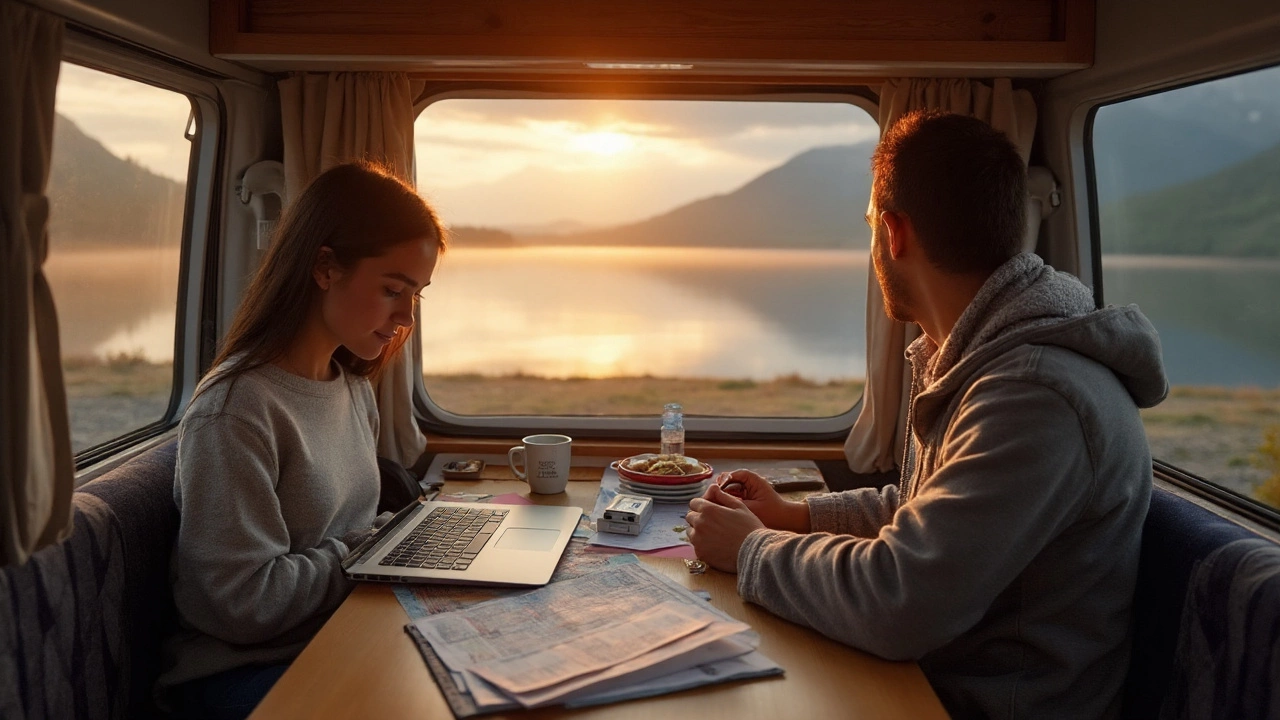
Is Full‑Time RVing Affordable in 2025? Real Costs, Budgets, and Ways to Save
Is full‑time RVing affordable in 2025? Get clear monthly budgets, cost breakdowns, and smart ways to save across the US, UK, and Europe.
Read MoreIf you’re dreaming about waking up by a lake, cooking breakfast on a tiny stove, and driving wherever the GPS tells you, the first question is always the same – how much will it cost? Below is a down‑to‑earth look at every major expense you’ll meet on a vanlife adventure. No fluff, just the numbers and tips you can use right now.
The biggest line on your budget is the vehicle itself. A used panel van in decent shape can run $5,000‑$12,000, while a brand‑new camper conversion may start around $30,000 and climb quickly. Remember to add a budget for a professional conversion if you’re not doing the work yourself – expect $3,000‑$7,000 for basic insulation, a bed platform, and a small fridge.
Don’t forget registration, tax, and first‑time insurance. In the UK, vehicle tax for a motorhome is usually around £150‑£250 a year, and insurance can vary from £300 to £800 depending on age, driving history, and coverage level.
Fuel is a recurring expense that can surprise you. A diesel van averaging 30 mpg will burn roughly £1.30 per litre (or about $6 per gallon). If you plan to drive 10,000 miles a year, you’re looking at around £2,200 in fuel alone. Keep a simple log of miles and refuel regularly to avoid nasty surprises.
Maintenance isn’t optional. Set aside at least $1,000‑$1,500 a year for oil changes, tyre wear, brake pads, and unexpected fixes. A small contingency fund (10 % of total costs) helps you stay calm when a part finally gives out.
Campsite fees depend on where you stay. Free wild‑camping spots can be priceless, but wired sites with electricity, water, and waste disposal cost about £15‑£30 per night in the UK. A realistic plan is one paid site for every three free nights – that comes to roughly £150‑£250 a month.
Don’t overlook the cost of power. A portable solar panel and battery bank can cost $800‑$1,500 up front, but they cut down on campsite electricity fees and let you stay longer off‑grid.
Cooking in a tiny kitchen is cheaper than eating out. Budget £150‑£250 a month for groceries if you stick to simple meals. A compact washing machine or laundrette visits add another £20‑£30 per month.
Other small expenses add up: campsite Wi‑Fi passes, propane canisters, and occasional gear replacement. Tuck $50‑$100 a month into your budget for these items.
Buy a reliable, low‑mileage van rather than a flashy model. DIY conversion can shave $2,000‑$5,000 off the price. Use free wild‑camping spots whenever you can – the UK has plenty of legal options on private land with permission.
Track every expense in a spreadsheet or a phone app. Seeing the numbers daily helps you spot where you’re overspending and adjust quickly.
Finally, think long term. A well‑maintained van holds its value, so when you decide to upgrade, you’ll recoup some of the original cost.
With these numbers in front of you, you can decide if vanlife fits your wallet and your wanderlust. The road is open – now you just need the right budget plan to enjoy it fully.

Is full‑time RVing affordable in 2025? Get clear monthly budgets, cost breakdowns, and smart ways to save across the US, UK, and Europe.
Read More